
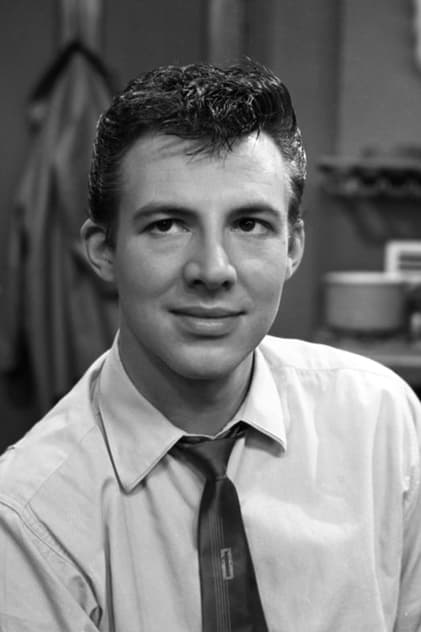
Philip Lowrie
Born: June 20, 1936
in Ashton-under-Lyne, Lancashire, England, UK
in Ashton-under-Lyne, Lancashire, England, UK
English stage and screen actor and occasional singer well known for playing Dennis Tanner in the world's longest running soap opera, Coronation Street. His two periods spent on the "street", from its inception in 1960 until 1968, and then again between 2011-14 earned him and entry in the Guinness World Records as "the person with the longest gap between television appearances as the same character in the same show" - 43 years. This record was subsequently broken by fellow English actor William Russell in October 2022.
Lowrie has also had a long and illustrious stage career.
Lowrie has also had a long and illustrious stage career.
Movies for Philip Lowrie...

Title: Pat and Margaret
Character: Martin - Warm Up Man
Released: September 11, 1994
Type: Movie
Unexpected events occur when Pat, a glamorous British-born star of American soaps, returns home to plug her auto-biography on television and meets, for the first time since they were teenagers, Margaret her plain and frumpy younger sister. The meeting is painful for both women highlighting the vast differences in their lives and resurrecting painful memories of their unhappy childhood with an uncaring, errant mother. The tabloid press smell a juicy story and a race ensues to trace the whereabouts of the long lost parent.

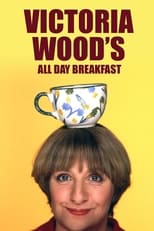
Title: Victoria Wood's All Day Breakfast
Released: December 25, 1992
Type: Movie
A television comedy special broadcast on BBC One on Christmas Day 1992. Sketches, stand-up comedy and songs combine to create the latest daytime show to be hosted by a popular husband-and-wife team. There are tips on female problems like seriously split ends, calorie reports, keep-fit with Jolly Polly, Agony Uncle Gerard's phone-in and Britain's first four times daily soap, set in a cosy corner of a shopping mall.

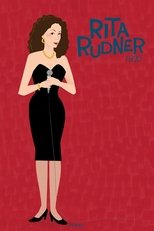
Title: Rita Rudner
Released: September 18, 1990
Type: TV
Singer, actress, dancer, comedienne: these are just some of the words the popular American comic can spell. Rita Rudner's first British series features stand-up comedy, sketches and songs.

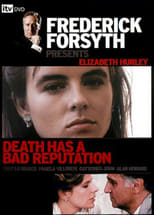
Title: Death Has A Bad Reputation
Character: Supt. Jamieson
Released: January 1, 1990
Type: Movie
A British agent is chasing after famous terrorist Carlos when he resurfaces in Europe.

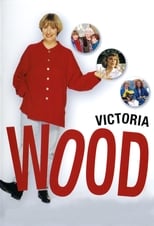
Title: Victoria Wood
Character: John Appleby
Released: November 16, 1989
Type: TV
Victoria Wood was a series of six one-off situation comedies written by and starring Victoria Wood in 1989, who took a break from sketches, two years after her very successful and award winning series Victoria Wood As Seen on TV. Wood appeared as "Victoria", a fictionalised version of herself, in all six episodes - in The Library it was said that she "worked in TV" and in Over To Pam characters appeared to recognise her celebrity and in the final episode, Staying In, she was taken to a party to perform as a comedienne and was expected to go through her stand-up 'routine'. Her character often broke the 'fourth wall' of TV and spoke directly to the camera, but not in every episode.
Bored with the sketch format and with a yearning to recapture previous success as a playwright, Wood came up with six individual sitcoms as a compromise. She admitted to finding the writing difficult. Though Wood was written as the central character, other lead parts were written with specific actresses in mind, like Julie Walters and Una Stubbs. "I want people to like me and the people who play my friends, and not everybody else" she said. Screenonline says of the shows "Modest in ambition and scale but rich in wit and acuity, the six playlets showcase Wood's eye for human foibles and her distinctively eccentric characters.".


Title: Victoria Wood
Character: Keith
Released: November 16, 1989
Type: TV
Victoria Wood was a series of six one-off situation comedies written by and starring Victoria Wood in 1989, who took a break from sketches, two years after her very successful and award winning series Victoria Wood As Seen on TV. Wood appeared as "Victoria", a fictionalised version of herself, in all six episodes - in The Library it was said that she "worked in TV" and in Over To Pam characters appeared to recognise her celebrity and in the final episode, Staying In, she was taken to a party to perform as a comedienne and was expected to go through her stand-up 'routine'. Her character often broke the 'fourth wall' of TV and spoke directly to the camera, but not in every episode.
Bored with the sketch format and with a yearning to recapture previous success as a playwright, Wood came up with six individual sitcoms as a compromise. She admitted to finding the writing difficult. Though Wood was written as the central character, other lead parts were written with specific actresses in mind, like Julie Walters and Una Stubbs. "I want people to like me and the people who play my friends, and not everybody else" she said. Screenonline says of the shows "Modest in ambition and scale but rich in wit and acuity, the six playlets showcase Wood's eye for human foibles and her distinctively eccentric characters.".


Title: Casualty
Character: Simon Spencer
Released: September 6, 1986
Type: TV
Drama series about the staff and patients at Holby City Hospital's emergency department, charting the ups and downs in their personal and professional lives.


Title: Sapphire
Character: Student
Released: November 2, 1959
Type: Movie
Two Scotland Yard detectives investigate the murder of a young woman of mixed race who had been passing for white. As they interview a spate of suspects -- including the girl's white boyfriend and his disapproving parents -- the detectives wade through a stubbornly entrenched sludge of racism and bigotry.


Title: Serious Charge
Character: Boy in Coffee Bar/Larry's Gang (uncredited)
Released: April 30, 1959
Type: Movie
Howard Phillips, a vicar who's new in the town of Bellington, wants to reach out to youth. The previous vicar's daughter, Hester Peters, who fears being a spinster, wants to be his wife. He tells her he's not interested. When he confronts a tough kid about something the youth has done, the lad sets out to frame the vicar. Hester, who's walked in on the confrontation, backs the youth's story. The town sides with her and the lad, turning against Phillips. He has a crisis of faith. What options does he have; can no one help him, his reputation, or his calling?
